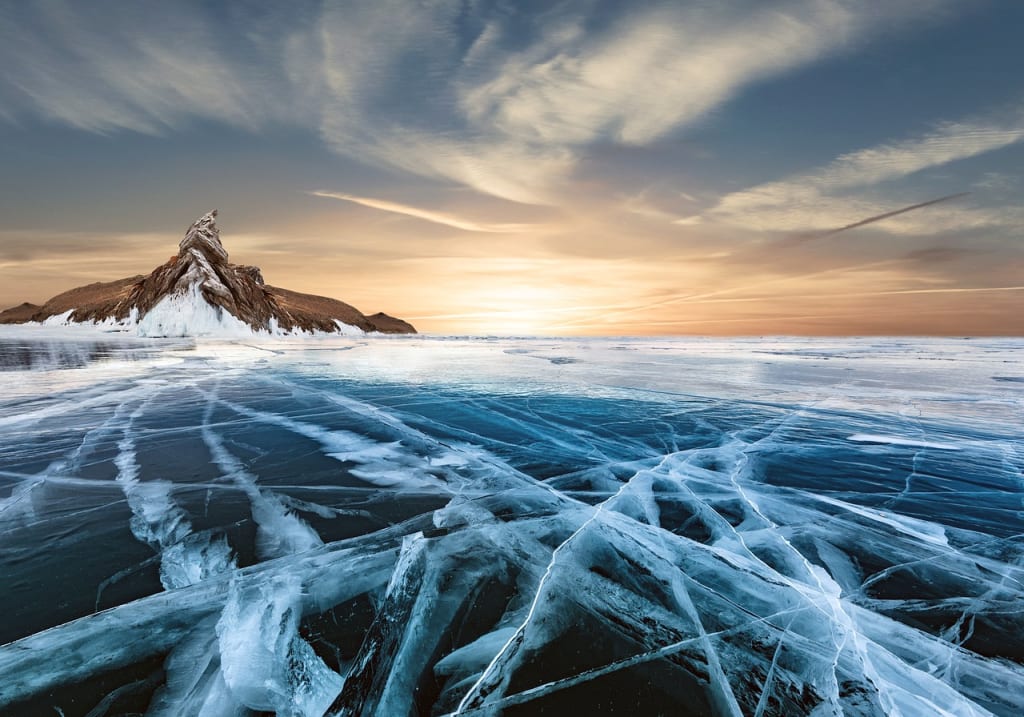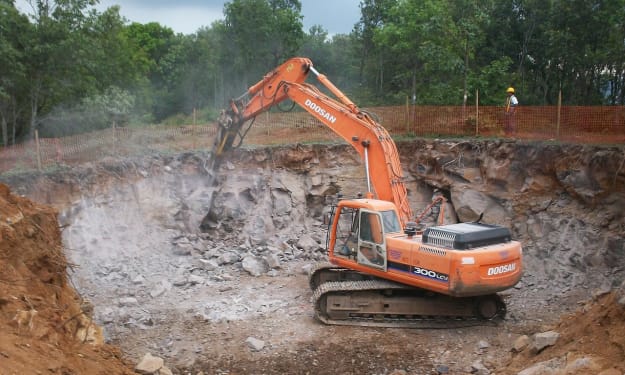How Will Earth Change If All the Ice Melts?
Navigating the Path to a Sustainable Future: Addressing the Consequences of Climate Change

The frightening rate at which the Arctic ice is disappearing is evidence that the Earth's climate is unquestionably changing. The average global temperature has increased by 1.1 °C over the last century, with 16 of the 17 hottest years ever recorded taking place since 2001. Scientists emphasize the urgent need for action to limit the impacts of this warming trend, which they predominantly blame to human activity since the mid-20th century.
Sea levels are rising significantly as a result of global ice melting due to rising temperatures. Sea levels have already increased globally by 6 cm in the 19th century and by 19 cm in the 20th century, endangering island nations and low-lying coastal communities. According to projections, sea levels might rise by up to 2.5 meters by the year 2100, submerging entire island nations like the Marshall Islands, Kiribati, Tuvalu, and the Maldives and uprooting millions of people in the process, producing a new wave of climate refugees.
But when you factor in the potential for all of the ice on Earth to melt completely, things get even worse. Global sea levels would rise by an astounding 68.3 meters if all of the ice on Antarctica, Greenland, and all of the world's glaciers melted. Even though it would take hundreds of years to occur, the effects of such a disaster would be disastrous, changing the face of our globe and sinking important coastal towns all over the world.
Cities along the Atlantic coast, such as New York, Philadelphia, and Boston, would be flooded, and cities in North America including Los Angeles, Vancouver, Seattle, Portland, San Diego, and so on would be submerged. San Francisco would turn into an island. Europe would also be badly hit, with cities like London, Berlin, and Venice submerged and nations like the Netherlands, Denmark, and Belgium under water.
All of the continents would be affected; substantial flooding and land loss would occur in Africa, Asia, Australia, and Antarctica. Entire nations, like Bangladesh, would vanish off the face of the earth, and millions of people would be uprooted. Humanity must shift quickly to renewable energy sources and lessen its dependency on fossil fuels in order to avert such a disastrous future.
Thankfully, a lot of nations have already started moving in this direction, as evidenced by rising renewable energy investments and international accords like the Paris Climate Accord that call for cooperation among all nations to tackle climate change. Even though the obstacles on our path are formidable, a sustainable future is achievable if we move decisively to address the underlying causes of climate change.
The shift to renewable energy is essential to reducing the effects of climate change. In this regard, nations like Norway, Iceland, and Costa Rica have achieved great progress, with a sizable share of their energy coming from renewable sources. For instance, hydropower accounts for more than 95% of Norway's electricity production from renewable sources. Costa Rica has seen periods of 100% renewable energy use, while Iceland depends almost entirely on geothermal and hydropower for its energy demands.
Global investments in renewable energy have also been rising; between 2008 and 2015, these investments increased by 57%. In this sense, the European Union has led the way, producing more than twice as much electricity from renewable sources between 2000 and 2013. In addition to lowering greenhouse gas emissions, these investments boost employment and the economy.
Renewable energy sources are now more affordable and widely available because to technology developments. Particularly in terms of efficiency and cost, solar and wind power have significantly improved, making them more and more competitive with conventional fossil fuels. Additionally, advances in battery storage technology have made it possible to better integrate renewable energy sources into current energy systems and mitigate their intermittent nature.
Mitigating climate change requires not just switching to renewable energy sources but also addressing deforestation and supporting sustainable land use practices. Sequestering carbon dioxide, the main greenhouse gas causing global warming, is a critical function of forests. Deforestation increases the consequences of climate change by releasing stored carbon into the atmosphere and lowering the Earth's ability to absorb CO2.
In addition to promoting sustainable logging methods and addressing the root causes of forest loss, such as increased agricultural production and infrastructural development, efforts to stop deforestation also aim to safeguard and restore forest ecosystems. Enacting laws to encourage the preservation of forests and sustainable land management can aid in the preservation of essential carbon sinks and the reduction of the effects of climate change.
Furthermore, worldwide cooperation is needed to address the underlying causes of climate change. With 195 signatory nations, the Paris Climate Accord is a major advancement in global collaboration to cut greenhouse gas emissions and slow down global warming. Nonetheless, governments, corporations, and civil society will need to continue to be committed to and work together to achieve the goals of the deal.
In conclusion, the effects of climate change are becoming more and more obvious, posing serious problems to ecosystems and human cultures in the form of melting ice caps, rising sea levels, and rising temperatures. In order to mitigate these effects, quick action is needed to support sustainable land use practices, safeguard and restore important ecosystems, and switch to renewable energy sources. Even though the task at hand is difficult, combined local, national, and international efforts can aid in addressing the underlying causes of climate change and constructing a more sustainable future for future generations.
About the Creator
Abdur Rahman
Hey there! I'm passionate about writing in science, horror, and fantasy genres. I'm all about supporting fellow writers,
so feel free to leave a tip! It helps fund my book purchases and submission fees for literary magazines.






Comments
There are no comments for this story
Be the first to respond and start the conversation.